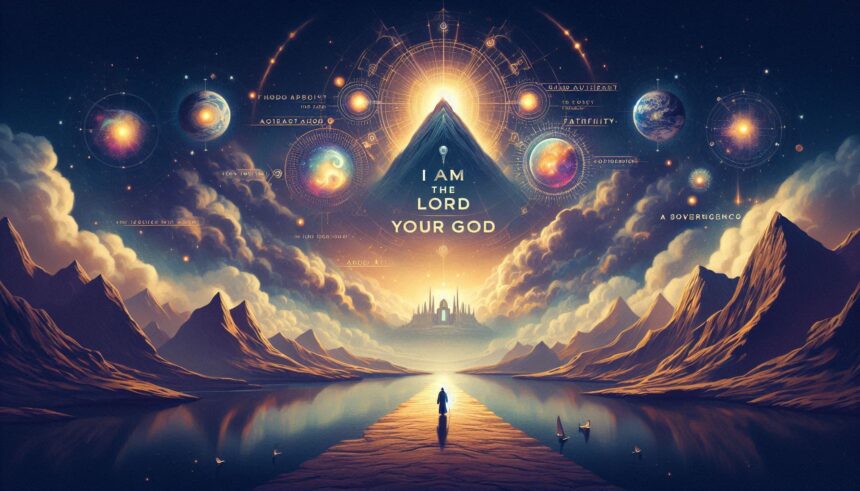Understanding His Authority and Love
The Powerful Declaration: “I Am the LORD Your God”
From the very beginning, God established His divine authority with the words “I am the LORD your God.” This powerful statement appears multiple times in Scripture, reminding His people of His sovereignty, love, and covenant. Found in Exodus, Leviticus, Isaiah, and other books, this declaration emphasizes God’s guidance, faithfulness, and desire for a deep relationship with humanity.
God’s First Command: “I Am the LORD Your God” in Exodus
In Exodus 20:2, God spoke directly to the Israelites, saying, “I am the LORD your God, who brought you out of Egypt, out of the land of slavery.” This verse introduces the Ten Commandments, setting the foundation for God’s law. His authority was not arbitrary; it was based on His loving act of deliverance.
By leading Israel out of Egypt, God demonstrated His power, faithfulness, and commitment to His people. This phrase is not just a statement—it is a reminder of God’s mighty works.
The Call to Obedience in Leviticus
In Leviticus 19:4, God commands, “Do not turn to idols or make metal gods for yourselves. I am the LORD your God.” Here, He establishes His exclusivity. Worship belongs only to Him, and His people must reject false gods.
Obedience to God’s law was not just about rules—it was about maintaining a holy relationship with Him. His commandments guided Israel toward righteousness, setting them apart from other nations.
Isaiah’s Prophetic Confirmation: God’s Eternal Authority
In Isaiah 43:3, the Lord declares, “For I am the LORD your God, the Holy One of Israel, your Savior.” This verse reassures God’s people of His eternal authority and salvation. Even when Israel faced exile and hardship, God’s sovereignty remained unchanged.
God’s statement in Isaiah highlights His role not only as the Creator but also as the Redeemer. He alone has the power to save, and His people must trust in His divine plan.
Jesus and the Fulfillment of God’s Sovereignty
The words “I am the LORD your God” are fully realized in Jesus Christ. In John 8:58, Jesus declares, “Before Abraham was born, I am!” This statement connects Jesus directly to God’s divine name in Exodus 3:14, where God says to Moses, “I AM WHO I AM.”
Jesus’ authority is the continuation of God’s rule over His people. By accepting Christ, believers acknowledge God’s ultimate sovereignty and fulfill the call to worship Him alone.
God’s Love and Mercy in His Declaration
Though “I am the LORD your God” emphasizes divine authority, it also reflects God’s love. In Deuteronomy 7:9, we read, “Know therefore that the LORD your God is God; He is the faithful God, keeping His covenant of love to a thousand generations of those who love Him and keep His commandments.”
God’s sovereignty is not about control—it is about relationship. He desires a people who trust, obey, and walk in His ways. His commandments are rooted in love, designed to bring life and blessing.
The Call to Faithfulness in a Modern World
Today, believers are still called to recognize God’s authority. The distractions of the modern world, like materialism and secularism, can lead many away from this truth. Yet, God’s words remain timeless: “I am the LORD your God.”
By living in obedience, trusting in Jesus, and rejecting spiritual idols, Christians affirm God’s sovereignty in their lives. His call to holiness and devotion continues to be relevant in every generation.
Conclusion: Recognizing the LORD as Our God
Throughout Scripture, the phrase “I am the LORD your God” stands as a powerful reminder of God’s authority, love, and faithfulness. From delivering Israel to fulfilling His promise in Christ, God has always been the sovereign ruler over His people.
As we navigate our faith, let us embrace His lordship, live in obedience, and trust in His everlasting covenant. He is not only the God of the past—He is our God today and forever.

